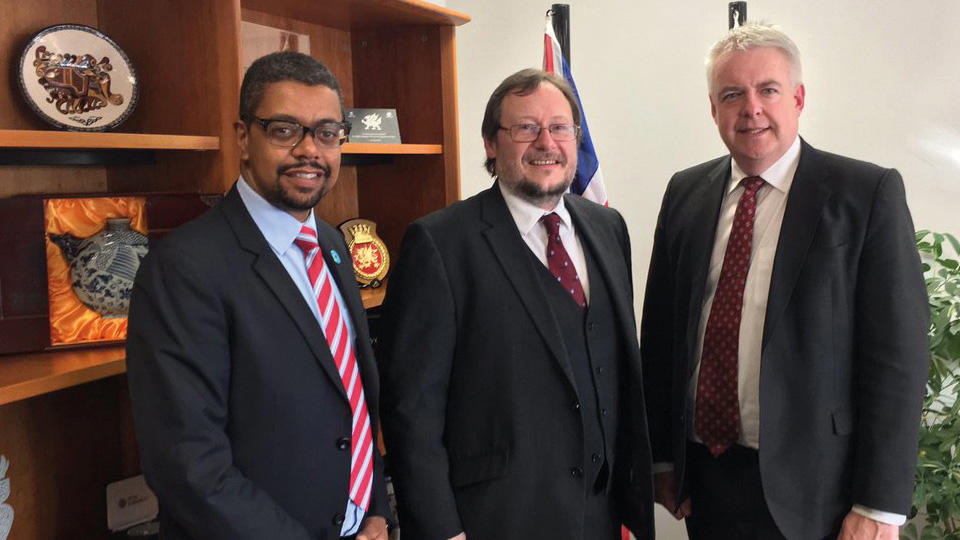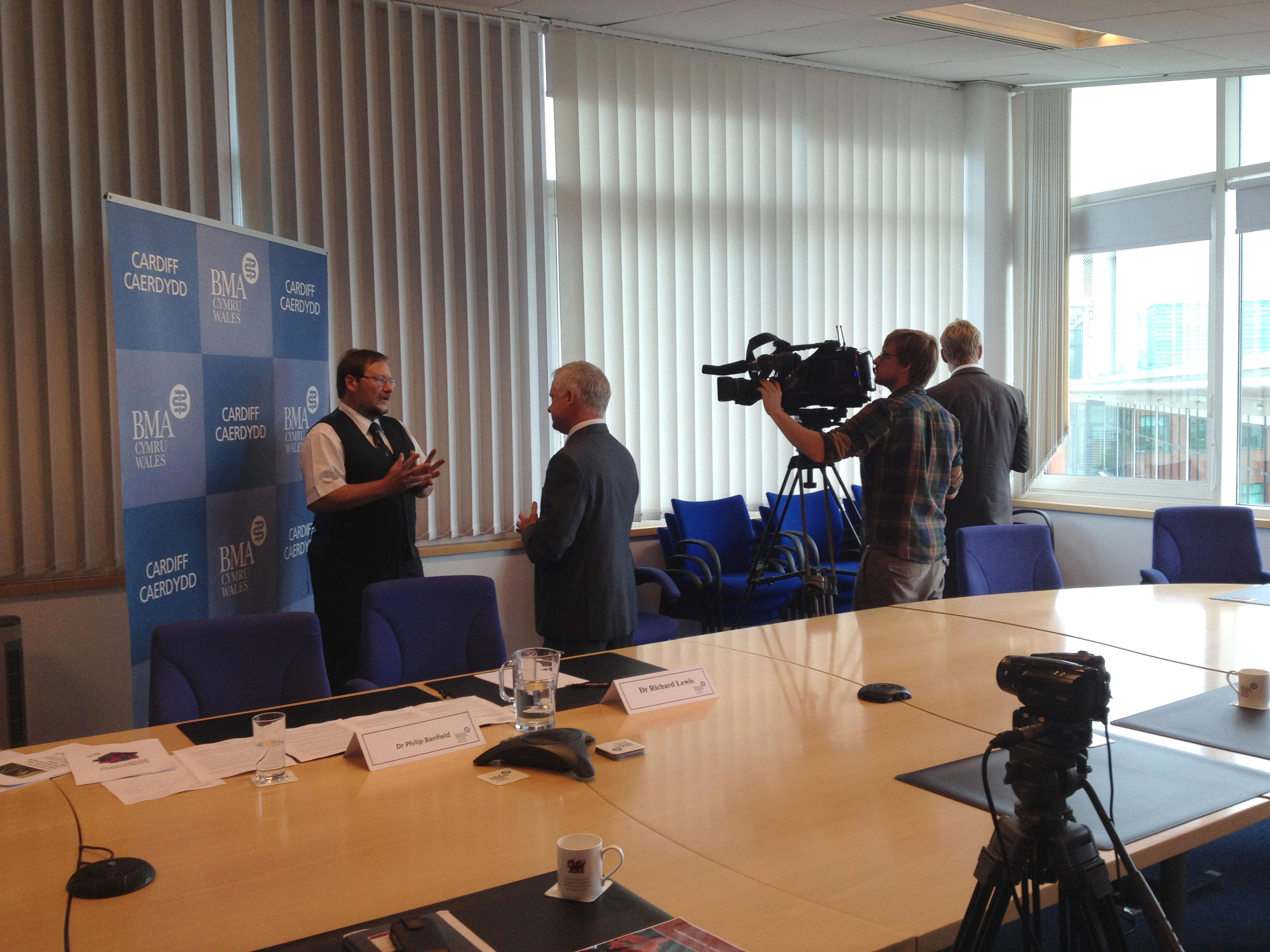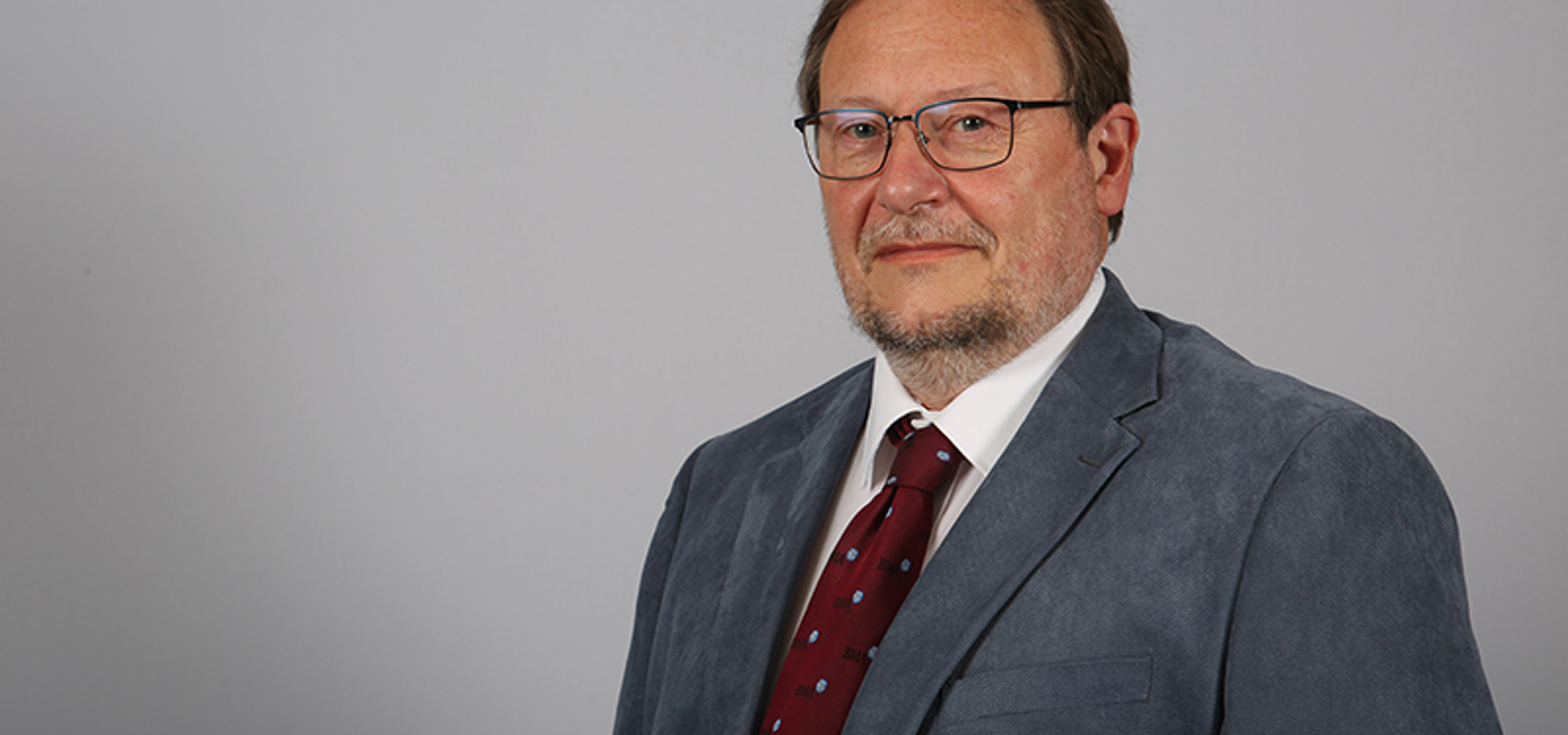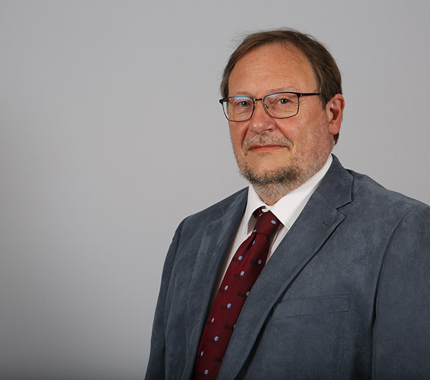‘Start to believe that your future is in your own hands. The BMA is here to help you achieve what you thought was unachievable.’
That is the message to doctors from Phil Banfield, the new BMA council chair, as he outlines his central ambition to force the Government to take responsibility for the plight of the profession and the state of the NHS.
Just two months into the job Professor Banfield is putting an action plan into place to ensure the BMA is ready to take whatever action is required to hold employers, politicians and policy makers to account and to drive positive change – including laying the foundations for serious and effective collective and industrial action.
There’s nothing junior about these doctors at all. These are highly skilled, highly intelligent and highly motivated peopleProfessor Banfield
Professor Banfield also has a message to ministers in Westminster. Doctors, who have kept the NHS running through years of crises, demand fair pay and will no longer tolerate the erosion of their terms and conditions.
‘If you’re serious about having an NHS that is world leading, then you’ve got to accept that the cost of your medical experts is the cost,’ he says.
‘We look forward to discussing what that cost is, and how you are going to meet those costs.’ Almost all parts of the profession have seen their pay drop, their working conditions worsen and demand on their services rocketing.
Junior doctors, for example, have suffered real-terms pay cuts of 26.8 per cent since 2008/09 and BMA members in England will be balloted for industrial action if the Government does not commit to full restoration by the end of September.
Speaking about junior doctors, Professor Banfield, who grew up in Crawley, studied medicine in London and has since worked in hospitals across the country from East Anglia to North Wales, adds: ‘There’s nothing junior about these doctors at all. These are highly skilled, highly intelligent and highly motivated people. If we lose a generation of junior doctors from the NHS we are all stuffed.’
Experience
While never aspiring to be a political leader, Professor Banfield – a keen gardener and nature lover away from medicine – is not new to a role like this.
He has significant experience in elected positions and holding politicians’ feet to the fire. In 2012 he was elected chair of council for BMA Cymru Wales and has since been chair of the BMA Welsh consultants committee.
During his years representing doctors in Wales, Professor Banfield successfully led a campaign against the closure of hospital services in the north of the country, made a clear case for the parlous state of the NHS (most particularly during a striking interview with journalist Eddie Mair), raised awareness of the bullying of staff, associate specialist and specialty doctors and worked with ministers to bring about NHS Wales’ core principles which enshrined the valuing of staff.
 EYE TO EYE: (From left) former Welsh minister for health Vaughan Gething, Professor Banfield and former first minister Carwyn Jones meet in 2017
EYE TO EYE: (From left) former Welsh minister for health Vaughan Gething, Professor Banfield and former first minister Carwyn Jones meet in 2017
For Professor Banfield, a largely productive relationship with political counterparts was brought about through being willing to listen – but most importantly showing strength wherever necessary.
‘The Welsh Government got terribly upset about some of the things I said,’ Professor Banfield says. ‘I said I don’t mind you being upset but I am going to give you examples outlining the state of the NHS every week until you finally cotton on that we are in trouble. About a month later we were having meetings regularly with the minister and started having sensible conversations.’
I said I am going to give you examples outlining the state of the NHS every week until you finally cotton on that we are in troubleProfessor Banfield
Professor Banfield takes the post at a time of unprecedented challenge: austerity politics have been brutal across society and the health and care system has felt the effects keenly.
The COVID-19 pandemic laid bare many of the inequalities that exist in our society and has left the NHS with an unprecedented backlog.
The inequalities highlighted and exacerbated in recent months and years – particularly issues such as homelessness – are areas of personal passion for Professor Banfield and priorities for action in the future.
But most immediately, the concern is that doctors are leaving the health service in droves while those who remain are often running on fumes.
‘If we don’t make a stand there won’t be an NHS. I’ve committed my life to this. We’ve all committed our lives to this. We don’t plan to stop that commitment now.’
Patients first
And while Professor Banfield plans to fight for doctors, he is clear he is also fighting for patients.
‘It is ultimately about patients and patient care,’ he says.
‘If you don’t sort these problems out for doctors it will impact patients even more. The harsh reality is the health service is deteriorating rapidly and it is going to be doctors that make a stand at this point. Pay is just one aspect of this.’
 MEDIA SPOTLIGHT: Professor Banfield gives media interviews in his role as chair of BMA Cymru Wales
MEDIA SPOTLIGHT: Professor Banfield gives media interviews in his role as chair of BMA Cymru Wales
During his three-year period as chair Professor Banfield intends to also deliver on the work to improve the culture of the BMA, to overhaul and massively expand and improve local organising and to drive a radical membership recruitment campaign – committing to the association being a strong trade union and an expert professional association representing members as well as possible.
I can serve patients best now by re-establishing the much-needed professional voice and authority of doctorsProfessor Banfield
He says: ‘My role is to change the face of the BMA. I’ve got to create a BMA that has an inclusive culture and which reflects the membership better. I want to get the best out of everyone. If, one day when I’m gone, I’m known as Phil Banfield the obstetrician and trade unionist that would be job done for me.’
Professor Banfield, who wanted to be a doctor from the age of eight, intends to place kindness and an investment in people at the heart of everything he does.
It was a lesson learned in early life. At school Professor Banfield wrote to David Attenborough for help when struggling to find books about Borneo, one of the settings for a story he was writing.
The letter was written more in hope than expectation, but to the then 15-year-old’s surprise Mr Attenborough’s wife responded informing him that her husband was away filming for television but that he would respond on his return.
Just weeks later he did so, suggesting a number of options for reading – but not including any of his own published works.
Support is central
These are memories that still strike a chord to this day. ‘For me it has always been about people – and I’ve tried to apply that kindness and that openness to everything I’ve done,’ Professor Banfield says.
‘I’m one of those people who takes pleasure in helping others to achieve,’ he adds. ‘I’ve always thought of myself as a relatively ordinary bloke. I don’t seek political power for the sake of the title – but I am ready to do the job that comes with that title. I want to surround myself with extraordinary people and direct their talent.
‘I feel like everything in my career has led to this. That does give me a great sense of purpose. My vocation was to serve patients and I feel I can serve patients best now by re-establishing the much-needed professional voice and the authority of doctors.’
Just two months into the job Professor Banfield clearly already has great clarity about the required sense of direction and the job that needs doing. His mission is already very much under way.
As he says: ‘Start to believe that your future is in your own hands. The BMA is here to help you achieve what you thought was unachievable.’


